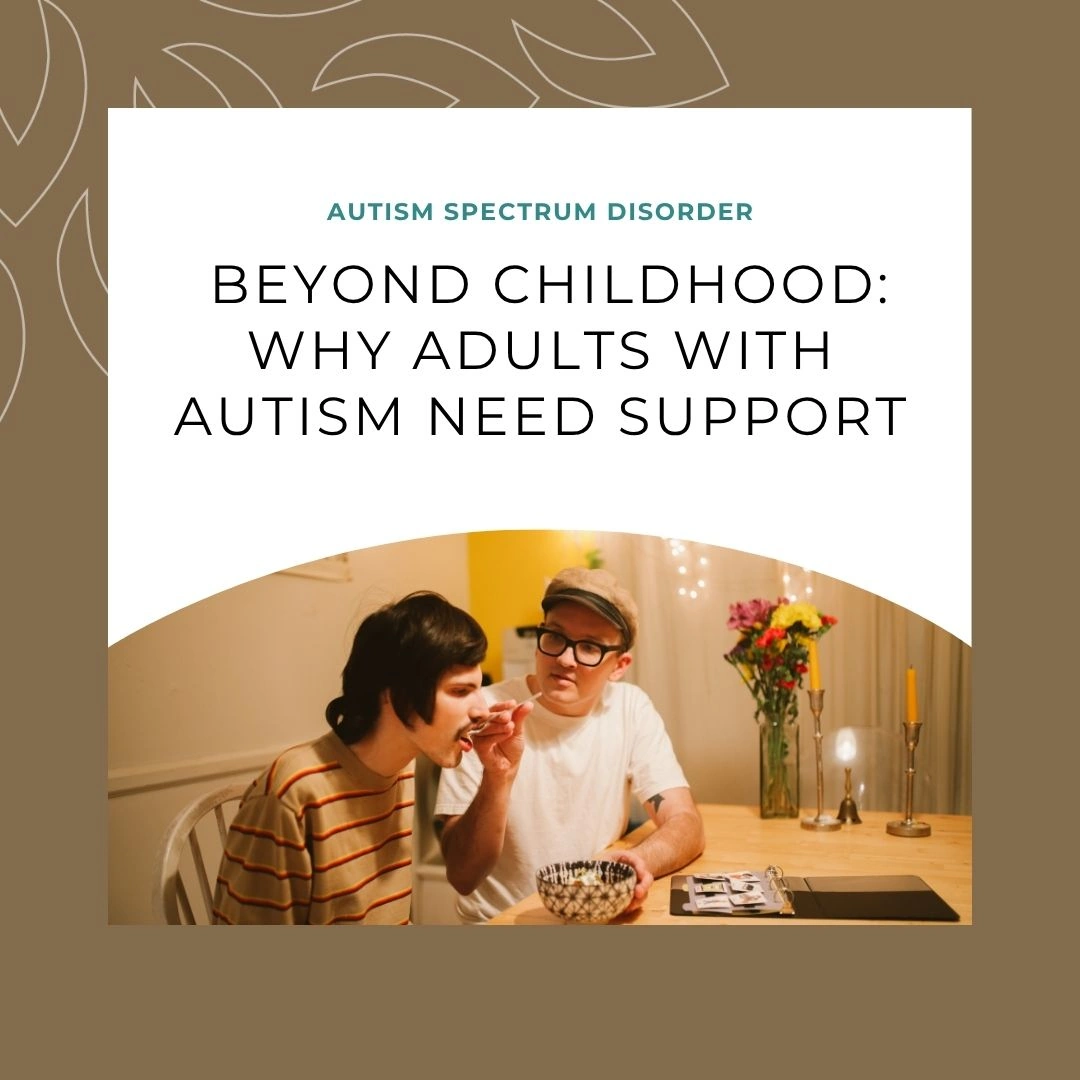Beyond Childhood: Why Adults With Autism Need Support

What is Autism Spectrum Disorder?
Autism Spectrum Disorder (ASD) is a neurological condition caused by differences in how the brain is wired. It affects everything from how individuals interact with others, socialize, learn, behave, and more. ASD is often thought of as a childhood condition, one in which a person “outgrows” as they get older. While autism is most frequently diagnosed in children, ASD is a lifelong condition and there is no cure for it. As the name suggests, ASD presents in varying degrees and the extent to which it affects individuals is different for everyone.
For some with ASD, they may present as socially unaware; they have trouble communicating and holding conversations, making eye contact, or sharing emotions. Others with ASD can work and live independently, while others may be nonverbal and require daily support and care. Since everyone experiences ASD differently, various levels of understanding, support, and care are required.
Challenges for Adults with ASD
Transitioning from adolescence to adulthood and beyond is a challenging time for anyone. For those with ASD, the transition can prove even more difficult, navigating new responsibilities, opportunities and experiences. While there is no cure for ASD, symptoms and behaviors can change in adulthood. New or developing symptoms can affect an individual’s ability to function in society, while others learn to “mask” their symptoms to blend in. Research shows that adults living with ASD have fewer opportunities than their peers without ASD.
These limited opportunities include:
- Higher unemployment rates
- Lower participation in higher education
- Less independence–most with ASD live at home with family members
- Fewer social interactions and relationships outside of family
- Limited community support
Aging parents and caregivers may also worry about the future of their adult children with ASD. What will happen to their child when they can no longer take care of them? Where will they live? Who will look after them?
Thankfully, there are many resources available to help adults with ASD.
Supporting Individuals with ASD
There are several ways adults with ASD can receive support. At the federal level, the Americans with Disabilities Act (ADA) ensures equal opportunities and protections for those with disabilities in employment. Vocational rehabilitation services can help with job placement services for people with disabilities, including autism. Social security and Medicaid can play critical roles in helping provide health care and long-term care services for adults with ASD. There may also be state-level programs available.
At the local level, support groups, Applied Behavior Analysis (ABA) services, therapy and counseling are all options that can help adults with ASD. Family counseling and workshops are also available to help support caregivers.
For those with more severe ASD symptoms who require specialized care, consider an Adult Foster Care (AFC) home. AFC homes assist residents with daily activities, helping them to thrive and reach their full potential in a safe and compassionate environment.
Contact Flatrock today to see how we provide a sanctuary to everyone and help your loved one with ASD thrive.
